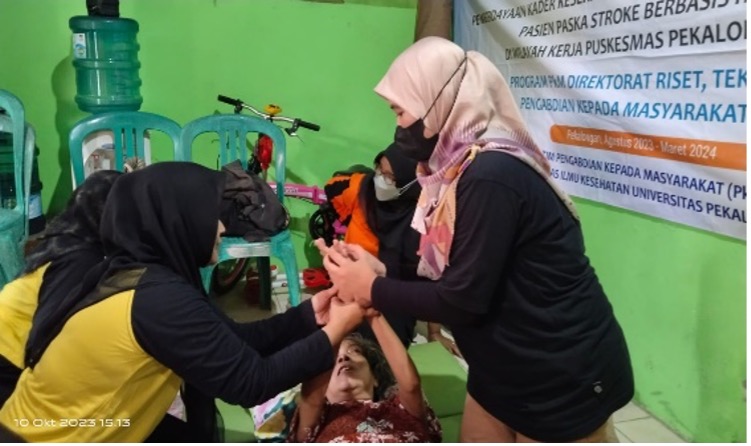Main Article Content
Abstract
Stroke causes disability and weakness, resulting in decreased functional ability. Palliative care is actively provided for stroke sufferers in the terminal phase. The majority of stroke clients experience residual symptoms such as paralysis, slurred speech, difficulty swallowing, difficulty speaking, and inability to understand other people's speech. The prolonged illness or the difficulty of recovering as usual creates stressors for both the patient and the family caring for them. The aim of this activity is to provide accurate information regarding post-stroke patient care by empowering palliative care health cadres (KAK LIA). This activity employs a participant active learning approach, where participants actively engage in training and mentoring activities. The methods used include lectures, question and answer sessions, and practical exercises. The activity consists of six stages: preparation, initial intervention, internal intervention, final intervention, mentoring, and evaluation. The result of this community service activity was an increase in participants' knowledge, with the majority shifting from poor knowledge (75%) to very good (90%).
Keywords
Article Details

This work is licensed under a Creative Commons Attribution-NonCommercial 4.0 International License.

